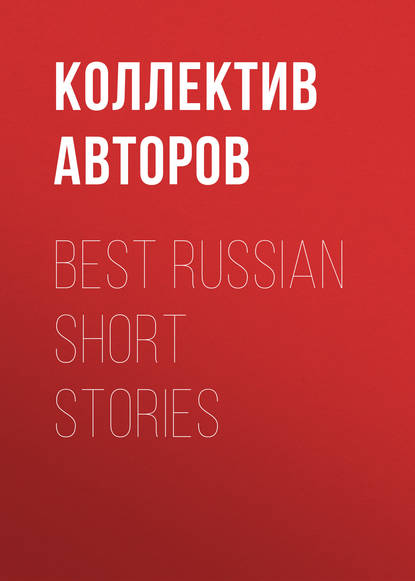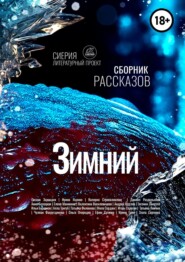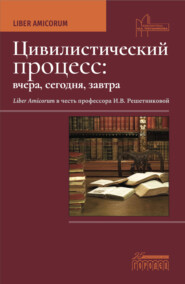По всем вопросам обращайтесь на: info@litportal.ru
(©) 2003-2025.
✖
Best Russian Short Stories
Настройки чтения
Размер шрифта
Высота строк
Поля
"Do not fix your gaze on me, Lazarus," he commanded. "I have heard that your head is like the head of Medusa, and turns into stone all upon whom you look. But I should like to have a close look at you, and to talk to you before I turn into stone," he added in a spirit of playfulness that concealed his real misgivings.
Approaching him, he examined closely Lazarus' face and his strange festive clothes. Though his eyes were sharp and keen, he was deceived by the skilful counterfeit.
"Well, your appearance is not terrible, venerable sir. But all the worse for men, when the terrible takes on such a venerable and pleasant appearance. Now let us talk."
Augustus sat down, and as much by glance as by words began the discussion. "Why did you not salute me when you entered?"
Lazarus answered indifferently: "I did not know it was necessary."
"You are a Christian?"
"No."
Augustus nodded approvingly. "That is good. I do not like the Christians. They shake the tree of life, forbidding it to bear fruit, and they scatter to the wind its fragrant blossoms. But who are you?"
With some effort Lazarus answered: "I was dead."
"I heard about that. But who are you now?"
Lazarus' answer came slowly. Finally he said again, listlessly and indistinctly: "I was dead."
"Listen to me, stranger," said the Emperor sharply, giving expression to what had been in his mind before. "My empire is an empire of the living; my people are a people of the living and not of the dead. You are superfluous here. I do not know who you are, I do not know what you have seen There, but if you lie, I hate your lies, and if you tell the truth, I hate your truth. In my heart I feel the pulse of life; in my hands I feel power, and my proud thoughts, like eagles, fly through space. Behind my back, under the protection of my authority, under the shadow of the laws I have created, men live and labour and rejoice. Do you hear this divine harmony of life? Do you hear the war cry that men hurl into the face of the future, challenging it to strife?"
Augustus extended his arms reverently and solemnly cried out: "Blessed art thou, Great Divine Life!"
But Lazarus was silent, and the Emperor continued more severely: "You are not wanted here. Pitiful remnant, half devoured of death, you fill men with distress and aversion to life. Like a caterpillar on the fields, you are gnawing away at the full seed of joy, exuding the slime of despair and sorrow. Your truth is like a rusted sword in the hands of a night assassin, and I shall condemn you to death as an assassin. But first I want to look into your eyes. Mayhap only cowards fear them, and brave men are spurred on to struggle and victory. Then will you merit not death but a reward. Look at me, Lazarus."
At first it seemed to divine Augustus as if a friend were looking at him, so soft, so alluring, so gently fascinating was the gaze of Lazarus. It promised not horror but quiet rest, and the Infinite dwelt there as a fond mistress, a compassionate sister, a mother. And ever stronger grew its gentle embrace, until he felt, as it were, the breath of a mouth hungry for kisses… Then it seemed as if iron bones protruded in a ravenous grip, and closed upon him in an iron band; and cold nails touched his heart, and slowly, slowly sank into it.
"It pains me," said divine Augustus, growing pale; "but look, Lazarus, look!"
Ponderous gates, shutting off eternity, appeared to be slowly swinging open, and through the growing aperture poured in, coldly and calmly, the awful horror of the Infinite. Boundless Emptiness and Boundless Gloom entered like two shadows, extinguishing the sun, removing the ground from under the feet, and the cover from over the head. And the pain in his icy heart ceased.
"Look at me, look at me, Lazarus!" commanded Augustus, staggering…
Time ceased and the beginning of things came perilously near to the end. The throne of Augustus, so recently erected, fell to pieces, and emptiness took the place of the throne and of Augustus. Rome fell silently into ruins. A new city rose in its place, and it too was erased by emptiness. Like phantom giants, cities, kingdoms, and countries swiftly fell and disappeared into emptiness – swallowed up in the black maw of the Infinite…
"Cease," commanded the Emperor. Already the accent of indifference was in his voice. His arms hung powerless, and his eagle eyes flashed and were dimmed again, struggling against overwhelming darkness.
"You have killed me, Lazarus," he said drowsily.
These words of despair saved him. He thought of the people, whose shield he was destined to be, and a sharp, redeeming pang pierced his dull heart. He thought of them doomed to perish, and he was filled with anguish. First they seemed bright shadows in the gloom of the Infinite. – How terrible! Then they appeared as fragile vessels with life-agitated blood, and hearts that knew both sorrow and great joy. – And he thought of them with tenderness.
And so thinking and feeling, inclining the scales now to the side of life, now to the side of death, he slowly returned to life, to find in its suffering and joy a refuge from the gloom, emptiness and fear of the Infinite.
"No, you did not kill me, Lazarus," said he firmly. "But I will kill you. Go!"
Evening came and divine Augustus partook of food and drink with great joy. But there were moments when his raised arm would remain suspended in the air, and the light of his shining, eager eyes was dimmed. It seemed as if an icy wave of horror washed against his feet. He was vanquished but not killed, and coldly awaited his doom, like a black shadow. His nights were haunted by horror, but the bright days still brought him the joys, as well as the sorrows, of life.
Next day, by order of the Emperor, they burned out Lazarus' eyes with hot irons and sent him home. Even Augustus dared not kill him.
* * * * *
Lazarus returned to the desert and the desert received him with the breath of the hissing wind and the ardour of the glowing sun. Again he sat on the stone with matted beard uplifted; and two black holes, where the eyes had once been, looked dull and horrible at the sky. In the distance the Holy City surged and roared restlessly, but near him all was deserted and still. No one approached the place where Lazarus, miraculously raised from the dead, passed his last days, for his neighbours had long since abandoned their homes. His cursed knowledge, driven by the hot irons from his eyes deep into the brain, lay there in ambush; as if from ambush it might spring out upon men with a thousand unseen eyes. No one dared to look at Lazarus.
And in the evening, when the sun, swollen crimson and growing larger, bent its way toward the west, blind Lazarus slowly groped after it. He stumbled against stones and fell; corpulent and feeble, he rose heavily and walked on; and against the red curtain of sunset his dark form and outstretched arms gave him the semblance of a cross.
It happened once that he went and never returned. Thus ended the second life of Lazarus, who for three days had been in the mysterious thraldom of death and then was miraculously raised from the dead.
THE REVOLUTIONIST
BY MICHAÏL P. ARTZYBASHEV
I
Gabriel Andersen, the teacher, walked to the edge of the school garden, where he paused, undecided what to do. Off in the distance, two miles away, the woods hung like bluish lace over a field of pure snow. It was a brilliant day. A hundred tints glistened on the white ground and the iron bars of the garden railing. There was a lightness and transparency in the air that only the days of early spring possess. Gabriel Andersen turned his steps toward the fringe of blue lace for a tramp in the woods.
"Another spring in my life," he said, breathing deep and peering up at the heavens through his spectacles. Andersen was rather given to sentimental poetising. He walked with his hands folded behind him, dangling his cane.
He had gone but a few paces when he noticed a group of soldiers and horses on the road beyond the garden rail. Their drab uniforms stood out dully against the white of the snow, but their swords and horses' coats tossed back the light. Their bowed cavalry legs moved awkwardly on the snow. Andersen wondered what they were doing there. Suddenly the nature of their business flashed upon him. It was an ugly errand they were upon, an instinct rather that his reason told him. Something unusual and terrible was to happen. And the same instinct told him he must conceal himself from the soldiers. He turned to the left quickly, dropped on his knees, and crawled on the soft, thawing, crackling snow to a low haystack, from behind which, by craning his neck, he could watch what the soldiers were doing.
There were twelve of them, one a stocky young officer in a grey cloak caught in prettily at the waist by a silver belt. His face was so red that even at that distance Andersen caught the odd, whitish gleam of his light protruding moustache and eyebrows against the vivid colour of his skin. The broken tones of his raucous voice reached distinctly to where the teacher, listening intently, lay hidden.
"I know what I am about. I don't need anybody's advice," the officer cried. He clapped his arms akimbo and looked down at some one among the group of bustling soldiers. "I'll show you how to be a rebel, you damned skunk."
Andersen's heart beat fast. "Good heavens!" he thought. "Is it possible?" His head grew chill as if struck by a cold wave.
"Officer," a quiet, restrained, yet distinct voice came from among the soldiers, "you have no right – It's for the court to decide – you aren't a judge – it's plain murder, not – " "Silence!" thundered the officer, his voice choking with rage. "I'll give you a court. Ivanov, go ahead."
He put the spurs to his horse and rode away. Gabriel Andersen mechanically observed how carefully the horse picked its way, placing its feet daintily as if for the steps of a minuet. Its ears were pricked to catch every sound. There was momentary bustle and excitement among the soldiers. Then they dispersed in different directions, leaving three persons in black behind, two tall men and one very short and frail. Andersen could see the hair of the short one's head. It was very light. And he saw his rosy ears sticking out on each side.
Now he fully understood what was to happen. But it was a thing so out of the ordinary, so horrible, that he fancied he was dreaming.
"It's so bright, so beautiful – the snow, the field, the woods, the sky. The breath of spring is upon everything. Yet people are going to be killed. How can it be? Impossible!" So his thoughts ran in confusion. He had the sensation of a man suddenly gone insane, who finds he sees, hears and feels what he is not accustomed to, and ought not hear, see and feel.
The three men in black stood next to one another hard by the railing, two quite close together, the short one some distance away.
"Officer!" one of them cried in a desperate voice – Andersen could not see which it was – "God sees us! Officer!"
Eight soldiers dismounted quickly, their spurs and sabres catching awkwardly. Evidently they were in a hurry, as if doing a thief's job.
Several seconds passed in silence until the soldiers placed themselves in a row a few feet from the black figures and levelled their guns. In doing so one soldier knocked his cap from his head. He picked it up and put it on again without brushing off the wet snow.
The officer's mount still kept dancing on one spot with his ears pricked, while the other horses, also with sharp ears erect to catch every sound, stood motionless looking at the men in black, their long wise heads inclined to one side.
"Spare the boy at least!" another voice suddenly pierced the air. "Why kill a child, damn you! What has the child done?"
"Ivanov, do what I told you to do," thundered the officer, drowning the other voice. His face turned as scarlet as a piece of red flannel.

















